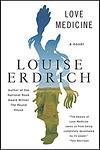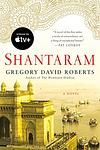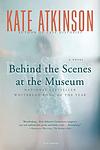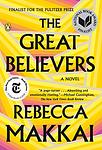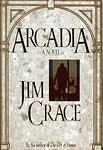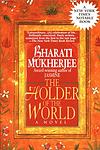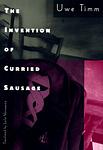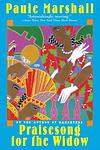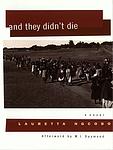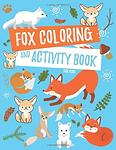The Greatest "Historical fiction, Contemporary, Fiction" Books Since 1980
Click to learn how this list is calculated.
This list represents a comprehensive and trusted collection of the greatest books. Developed through a specialized algorithm, it brings together 300 'best of' book lists to form a definitive guide to the world's most acclaimed books. For those interested in how these books are chosen, additional details can be found on the rankings page.
Genres
Historical fiction is a genre of literature that combines fictional stories with real historical events, settings, and characters. These books often take place in a specific time period and are based on research and factual information, but also include imaginative elements to create a compelling narrative. Historical fiction allows readers to experience the past in a unique and engaging way, while also providing insight into the social, cultural, and political issues of the time.
Contemporary books are a genre that focuses on stories set in the present day, often exploring current social, cultural, and political issues. These books are typically written in a modern style and often feature relatable characters dealing with real-life situations. Contemporary books can cover a wide range of topics, from romance and family drama to coming-of-age stories and thrillers. The genre is constantly evolving to reflect the changing world we live in, making it a popular choice for readers who want to stay up-to-date with the latest trends and issues.
Countries
Date Range
Reading Statistics
Click the button below to see how many of these books you've read!
Download
If you're interested in downloading this list as a CSV file for use in a spreadsheet application, you can easily do so by clicking the button below. Please note that to ensure a manageable file size and faster download, the CSV will include details for only the first 500 books.
Download-
1. The Amazing Adventures of Kavalier and Clay by Michael Chabon
The book follows the lives of two Jewish cousins, one a skilled escape artist and the other a talented artist, before, during, and after World War II. They create a popular comic book superhero, which brings them fame and fortune. However, their success is complicated by personal struggles, including the escape artist's attempts to rescue his family from Nazi-occupied Prague and the artist's struggle with his sexuality. The narrative explores themes of escapism, identity, and the golden age of comic books.
-
2. Love Medicine by Louise Erdrich
"Love Medicine" is a novel that explores the lives of several generations of a Native American family living on a reservation in North Dakota. The narrative is presented through a series of interconnected stories, each told from the perspective of different family members, and spans over 60 years, from 1934 to 1999. The book explores themes of love, family, identity, and the struggle between tradition and modernity. It provides a deep and poignant look into the complexities of Native American life and culture, and the challenges faced by the community.
-
3. The River Sutra by Gita Mehta
"The River Sutra" by Gita Mehta is a captivating novel that explores the intertwining lives of various characters along the sacred river Narmada in India. Through vivid storytelling and rich descriptions, the book delves into themes of spirituality, love, and the search for meaning in life. As the characters embark on journeys of self-discovery, the river serves as a powerful metaphor for the flow of life and the interconnectedness of all beings. With its lyrical prose and thought-provoking narrative, "The River Sutra" offers a profound exploration of the human experience and the timeless wisdom of ancient traditions.
-
4. The Ghost Road by Pat Barker
"The Ghost Road" is a historical novel set during World War I that follows the experiences of a British army officer undergoing treatment for shell shock at a mental hospital. The narrative alternates between his perspective and that of his psychiatrist, who is fascinated by the psychological effects of war. The novel explores themes of trauma, memory, and the brutal realities of war, while also delving into the psychiatrist's own past experiences with a headhunting tribe in the South Pacific.
-
5. Blonde by Joyce Carol Oates
The novel is a fictionalized account of the life of one of Hollywood's most enduring and enigmatic icons, Marilyn Monroe. It reimagines her life from her troubled childhood as Norma Jeane Baker through her rise to stardom and her tragic demise. The book delves into the complexities of her inner life, exploring her relationships, her struggles with fame, and her quest for love and identity. It presents a psychological portrait that blends fact with speculation, capturing the dichotomy between the public persona of the blonde bombshell and the private experiences of a woman both blessed and cursed by her beauty and allure.
-
6. Stones For Ibarra by Harriet Doerr
The novel is a poignant exploration of life and death in a small Mexican village, as seen through the eyes of an American couple who move there to revive a family-owned copper mine. The narrative weaves together the couple's personal journey and the rich tapestry of the village's inhabitants, their traditions, and their stories. As the couple confronts the challenges of adapting to a new culture and the harsh realities of the mining business, they also grapple with their own mortality and the impact they have on the community they have grown to love. The book is a lyrical meditation on the intersections of past and present, the inevitable passage of time, and the beauty found in the simplicity of rural life.
-
7. Shantaram by Gregory David Roberts
The novel follows the life of a convicted Australian bank robber and heroin addict who escapes from prison and flees to India. Settling in the bustling city of Mumbai, he assumes a new identity and immerses himself in the local culture, forming a close bond with the people in a slum. As he navigates his new environment, he becomes entangled in various criminal activities, including running a free health clinic, working for the Bombay mafia, and fighting in Afghanistan. Throughout his journey, he grapples with love, forgiveness, and his quest for redemption, all while exploring themes of good and evil, friendship, and the complexities of the human spirit.
-
8. Behind the Scenes at the Museum by Kate Atkinson
The novel is a unique blend of family saga and historical fiction, told from the perspective of Ruby Lennox, whose narrative begins before her birth and spans over three generations of women in her family. Ruby's story is interwoven with "footnotes" that delve into the lives of her ancestors, revealing secrets, tragedies, and the complexity of their relationships. The book explores themes of motherhood, loss, and identity, while providing a humorous and poignant look at life in the 20th century England.
-
9. Cutting for Stone by Abraham Verghese
The novel follows the life of twin brothers born from a secret union between an Indian nun and a British surgeon in Ethiopia. Their mother dies during childbirth and their father disappears, leaving them to be raised by two doctors at the mission hospital where they were born. The story spans several decades and continents, and explores themes of love, betrayal, medicine, and the complexity of family ties. One of the brothers, a gifted surgeon, flees to America after a political revolution in Ethiopia, while the other remains and struggles with the challenges of practicing medicine in a developing country.
-
10. The History of the Siege of Lisbon by José Saramago
This narrative revolves around a proofreader named Raimundo Silva, who, while working on a historical text about the Siege of Lisbon, decides to alter history by adding a single word to the text, turning the factual account into a fictional one. This act of rebellion leads him into a relationship with his boss, Maria Sara, and together they explore the consequences of questioning historical facts and narratives. The story also delves into the power of language and storytelling, and the blurred lines between history and fiction.
-
11. The Great Believers by Rebecca Makkai
"The Great Believers" by Rebecca Makkai is a powerful novel that tells the story of two interconnected groups of people: a group of gay men in 1980s Chicago during the height of the AIDS epidemic, and a woman in 2015 who is searching for her estranged daughter in Paris. The novel explores themes of love, loss, friendship, and the devastating impact of the AIDS crisis. Makkai's writing is both heartbreaking and hopeful, and she skillfully weaves together the two timelines to create a poignant and unforgettable story.
-
12. Arcadia by Jim Crace
The novel follows the intertwined stories of three individuals: Victor, a wealthy businessman who seeks to recreate his childhood paradise, an apple orchard, in a city; Anna, a young woman who is drawn to Victor's vision and becomes his personal assistant; and a young boy named Paddy, who is unknowingly the key to Victor's past. As Victor's utopian project begins to crumble, the lives of these three characters are dramatically altered. The narrative explores themes of memory, nostalgia, and the destructive pursuit of idealized pasts.
-
13. Holder of the World: A Novel by Bharati Mukherjee
The novel explores the life of Hannah Easton, a woman born in 17th century Salem, who gets married to a British adventurer and travels to India. In India, she becomes the concubine of a local ruler and takes on the name "The Holder of the World". The story is narrated by a 20th-century woman who discovers Hannah's story through a virtual reality device. The narrative weaves together the historical and the contemporary, the East and the West, and the real and the virtual, to create a rich tapestry of a woman's life and the cultural clashes she experiences.
-
14. The Invention of Curried Sausage by Uwe Timm
The book is a fictional account of the creation of the popular German fast food, curried sausage. The story unfolds through the narration of a young journalist who visits an elderly woman, believed to be the inventor of the dish during World War II. It explores the woman's tumultuous love affair with a young sailor during the chaotic final days of the war, her struggle for survival, and the circumstances that led to the creation of the spicy sausage. The novel is a blend of romance, war-time survival, and culinary innovation.
-
15. Disappearance by David Dabydeen
"Disappearance" is a novel about a young Indian man who moves to England to work as a carpenter in order to send money back to his family in India. However, he finds himself isolated and struggling to adapt to the unfamiliar culture, language, and climate. As he grapples with his identity and sense of belonging, he also becomes involved with an older woman, leading to a complex and fraught relationship. The book explores themes of immigration, cultural dislocation, race, and identity.
-
16. Praisesong For The Widow by Paule Marshall
The novel explores the transformative journey of Avey Johnson, a middle-aged African-American woman who, while on a cruise in the Caribbean, experiences a profound personal crisis that compels her to confront her disconnected life and lost cultural heritage. As memories of her ancestral past and her childhood in the South resurface, Avey abandons her affluent but sterile lifestyle to embark on a spontaneous pilgrimage to the island of Carriacou. There, through the island's rituals and the companionship of the local people, she reconnects with the communal values of her heritage and finds the strength to reclaim her sense of identity and purpose. The story is a lyrical meditation on the importance of heritage, memory, and the need for a sense of belonging.
-
17. Awaiting Trespass by Linda Ty-Casper
Set against the backdrop of martial law in the Philippines, the novel delves into the life of a middle-aged woman who is waiting for the government to arrest her due to her association with subversive elements. As she anticipates the inevitable, she reflects on her personal history, her family's past, and the country's turbulent political situation. The narrative weaves through her memories, fears, and the oppressive atmosphere of a society under authoritarian rule, capturing the emotional and psychological impact of living under constant threat and the struggle for freedom and human dignity.
-
18. Copper Crown by Lane Von Herzen
"Copper Crown" is a historical novel set in the early 20th century, revolving around the life of a strong-willed woman who inherits a copper mine amidst the tumultuous backdrop of labor unrest and social upheaval. As she navigates the male-dominated mining industry, she must contend with personal betrayals, the complexities of love, and the struggle for workers' rights. Her journey is one of resilience and empowerment, reflecting the broader themes of gender equality and the fight for social justice during a time of significant change in American history.
-
19. As If I Am Not There by Slavenka Drakulic
The book is a harrowing tale of a young woman's survival in a Balkan concentration camp during the Bosnian War. The protagonist, a school teacher, is taken from her village and forced into sexual slavery by the enemy soldiers. It's a stark exploration of the brutalities of war, the dehumanization of individuals, and the resilience of the human spirit. The narrative is a poignant commentary on the horrors of war and the resilience of women in the face of unimaginable atrocities.
-
20. Fantasia: An Algerian Cavalcade by Assia Djebar
"Fantasia: An Algerian Cavalcade" is a multifaceted novel that intertwines personal narratives with the history of Algeria's resistance against French colonialism. Through a blend of autobiography, historical documentation, and fictional reimaginings, the book explores the complex layers of identity, memory, and struggle from the perspective of Algerian women. The narrative shifts across time, recounting both the 19th-century French invasion and the 20th-century war for independence, while delving into the author's own experiences and the broader cultural and linguistic challenges faced by Algerian society. The novel stands out for its poetic style and its innovative use of language to capture the voices of those often silenced in historical discourse.
-
21. Soldiers of Salamis by Javier Cercas
This novel revolves around a true event during the Spanish Civil War, where a nationalist soldier spares the life of a famous poet who was about to be executed. The story is told from the perspective of a journalist who becomes obsessed with the incident and embarks on a quest to uncover the truth about what happened. As he delves deeper, he discovers the complexities of heroism, history, and memory, and is forced to question his own understanding of these concepts.
-
22. Seventh Heaven by Alice Hoffman
The novel is a captivating portrayal of suburban life in the late 1950s, where conformity and appearance are paramount. It follows the story of a divorced woman who moves into a tight-knit community, challenging the neighborhood's rigid norms and expectations. Her arrival sets off a chain of events that disrupts the seemingly perfect facade of the community, as she forms unlikely friendships and inspires other residents to confront their desires and fears. Through her influence, the characters embark on journeys of self-discovery and transformation, revealing the complexities and contradictions beneath the surface of suburban America.
-
23. And They Didn't Die by Lauretta Ngcobo
This novel explores the resilience and struggles of a group of women in a rural South African village during the apartheid era. As they grapple with oppressive laws, land seizures, and the forced labor system that sends their men to work in distant mines, the women band together to sustain their families and community. Their story is one of survival and solidarity in the face of systemic racism and sexism, highlighting the intersection of personal and political battles while showcasing the strength and endurance of women under extreme hardship.
-
24. Yoruba Girl Dancing by Simi Bedford
The novel explores the life of a young Nigerian girl who is sent to England for a better education by her affluent family. Uprooted from her Yoruba culture, she faces the challenges of assimilation, racism, and identity crisis in a predominantly white British society. As she grows up, the protagonist navigates the complexities of her dual heritage, trying to reconcile her African roots with her Western upbringing. The story is a poignant reflection on the loss of cultural identity and the struggle to find a sense of belonging in a foreign land.
-
25. The Hidden Word by Ulla Hahn
"The Hidden Word" is a poignant coming-of-age novel set in post-war Germany, which follows the life of a young girl from a conservative, working-class family as she discovers the transformative power of language and literature. Struggling against the constraints of her rural, religious upbringing and the societal expectations placed upon women of her time, she seeks solace and freedom in the world of books. Her intellectual and emotional journey is marked by the tension between her burgeoning individuality and the traditional values she is expected to uphold, leading to a narrative rich in both personal growth and the exploration of the capacity of words to both conceal and reveal profound truths.
Reading Statistics
Click the button below to see how many of these books you've read!
Download
If you're interested in downloading this list as a CSV file for use in a spreadsheet application, you can easily do so by clicking the button below. Please note that to ensure a manageable file size and faster download, the CSV will include details for only the first 500 books.
Download
